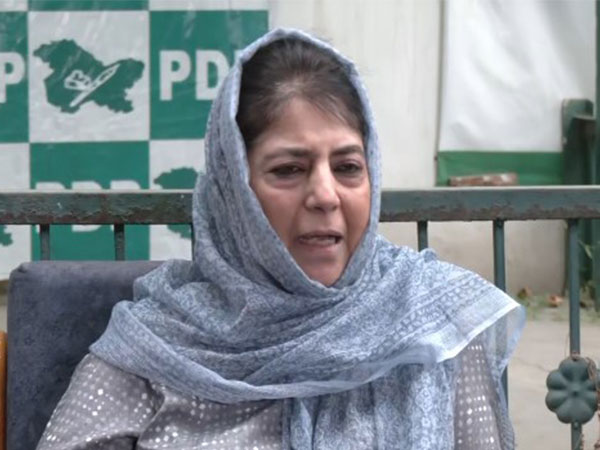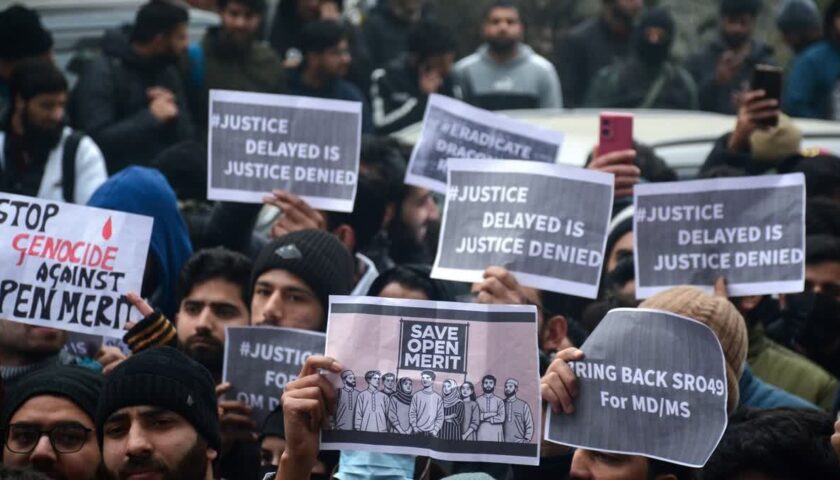The Removal of SP Wahid from ACB: A Litmus Test for Justice and Accountability in J&K
By: Javid Amin
The recent removal of SP Abdul Wahid from the Anti-Corruption Bureau (ACB) of Jammu and Kashmir has ignited a storm of controversy, casting doubt on the government’s commitment to transparency, justice, and accountability. This decision, which follows Wahid’s bold revelations about alleged malpractices by senior officials in the Srinagar Smart City project, has been interpreted by many as a punitive measure against whistleblowers who dare to challenge entrenched corruption.
Former Jammu and Kashmir Chief Minister Mehbooba Mufti has vocally criticized this move, arguing that it exposes a troubling nexus between corrupt practices and powerful interests.
A Bold Voice Silenced: SP Abdul Wahid’s Revelations
SP Abdul Wahid’s tenure at the ACB was marked by fearless investigations into corruption, often targeting influential figures. His most recent revelations concerned malpractices by two senior officers involved in the Srinagar Smart City project. These allegations included:
- Irregularities in project execution: Misallocation of funds and substandard work delivery.
- Opaque tendering processes: Favoritism in awarding contracts.
The Srinagar Smart City initiative, intended to modernize infrastructure and enhance urban living, has long been under scrutiny for alleged corruption. Wahid’s public disclosure of these issues made him a target for backlash, culminating in his removal.
A Pattern of Suppression or a Policy Decision?
The removal of SP Wahid and his colleagues raises significant questions:
- Is whistleblowing being penalized? Officials like Wahid, who bring malpractices to light, appear to be facing punitive actions rather than being lauded for their integrity.
- Is there selective accountability? Critics argue that anti-corruption drives disproportionately target ordinary citizens or politically non-aligned individuals, while shielding the powerful.
- Does this signal a systemic problem? The dismissal may reflect a broader unwillingness to confront institutional corruption.
Mehbooba Mufti’s Response: A Call for Justice
Former Chief Minister Mehbooba Mufti has been one of the most vocal critics of Wahid’s removal. In a post on X (formerly Twitter), she stated:
“The removal of Abdul Wahid & his colleagues from the Anti-Corruption Bureau (ACB) highlights the risks faced by officials who challenge corruption. It exposes nexus between the corrupt & most powerful. This action of punishing the whistleblower has revealed the government’s true intentions behind using various agencies including ACB to raid properties of Kashmiris under the guise of corruption investigations.”
Mufti’s statement underscores a broader concern: that anti-corruption agencies may be weaponized to serve political agendas rather than fostering genuine transparency.
A Troubling Nexus: Corruption and Power in J&K
The case of SP Wahid highlights systemic issues in Jammu and Kashmir:
- Lack of Protection for Whistleblowers: Despite legal provisions, whistleblowers face career risks and personal threats.
- Politicization of Agencies: Institutions like the ACB are perceived as being influenced by political or vested interests.
- Erosion of Public Trust: Actions like Wahid’s removal deepen skepticism about the government’s commitment to anti-corruption efforts.
The Role of the ACB in J&K’s Anti-Corruption Drive
The Anti-Corruption Bureau was envisioned as a robust institution to combat graft in Jammu and Kashmir. Over the years, the agency has conducted several high-profile raids and investigations. However, recent events suggest:
- Allegations of Bias: Critics claim that ACB’s investigations disproportionately target certain groups while ignoring others.
- Inconsistency in Action: Cases of apparent misconduct by powerful individuals often remain unresolved.
SP Wahid’s case is a stark reminder of these challenges.
The Bigger Picture: Implications for Governance and Development
The removal of SP Wahid is not an isolated incident. It has broader implications:
- Undermining Development Projects: Projects like the Srinagar Smart City are vital for J&K’s progress. Corruption in these initiatives delays development and wastes public funds.
- Chilling Effect on Bureaucracy: Actions against whistleblowers discourage other officials from exposing wrongdoing.
- Deteriorating Public Trust: The perception that the government is shielding corruption erodes faith in governance.
The Need for Reform and Transparency
To restore public trust and ensure accountability, the following steps are crucial:
- Strengthen Whistleblower Protection: Implement robust safeguards to protect individuals like SP Wahid from retaliation.
- Ensure Independence of Agencies: Institutions like the ACB must operate free from political or vested influences.
- Promote Transparency: Publicly disclose investigation findings to foster trust.
- Enforce Accountability Equitably: Ensure that anti-corruption measures apply to all, regardless of their power or position.
Bottom-Line: A Call for Justice and Accountability
The removal of SP Wahid from the ACB highlights the fragility of justice in a system plagued by corruption and power dynamics. It underscores the urgent need for systemic reforms to ensure that whistleblowers are protected, accountability is enforced, and public trust is restored.
As J&K grapples with the challenges of governance and development, the government must demonstrate its commitment to justice—not through words, but through actions. The public deserves nothing less than a transparent, accountable system that prioritizes the collective good over individual interests.




